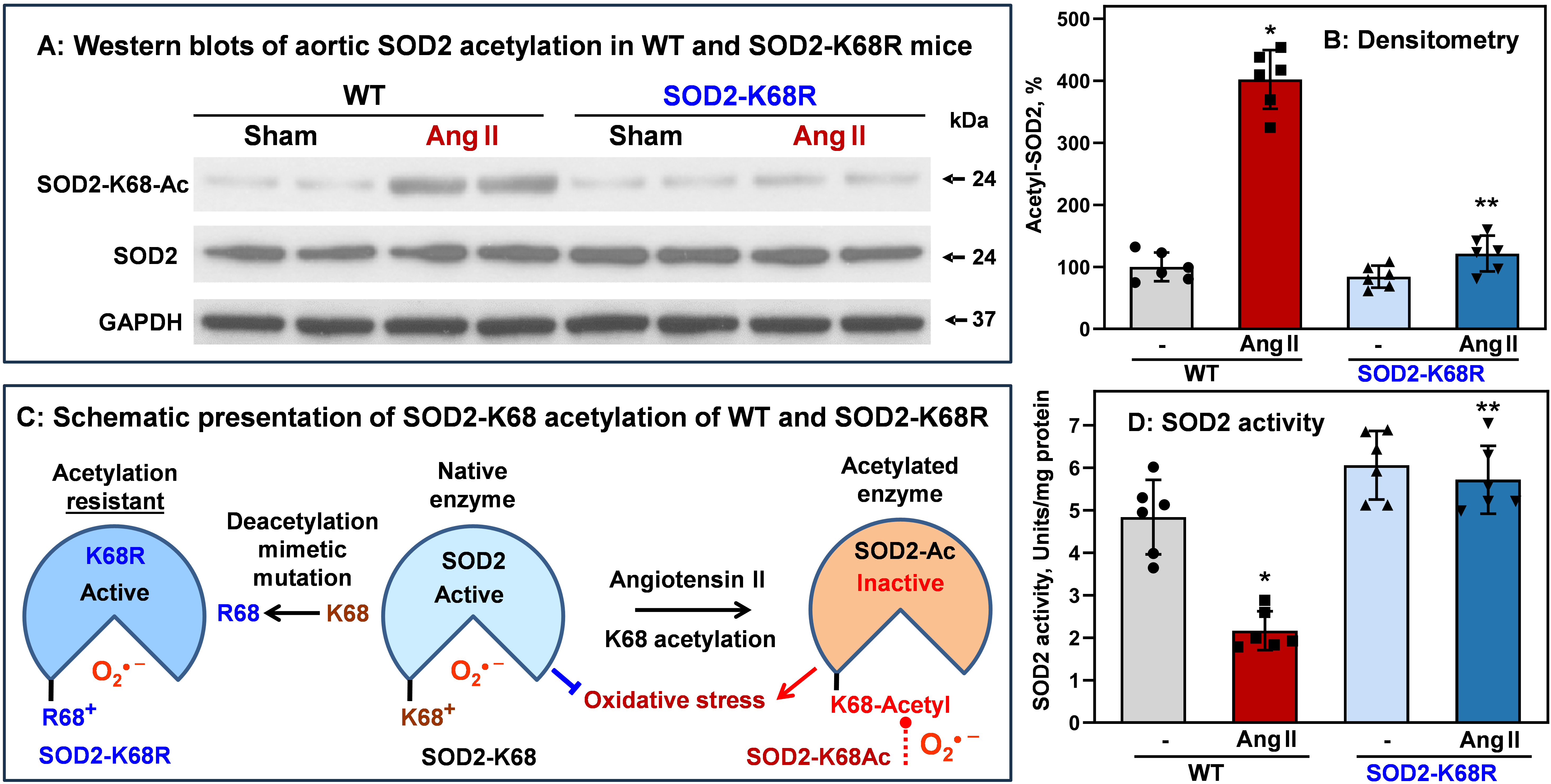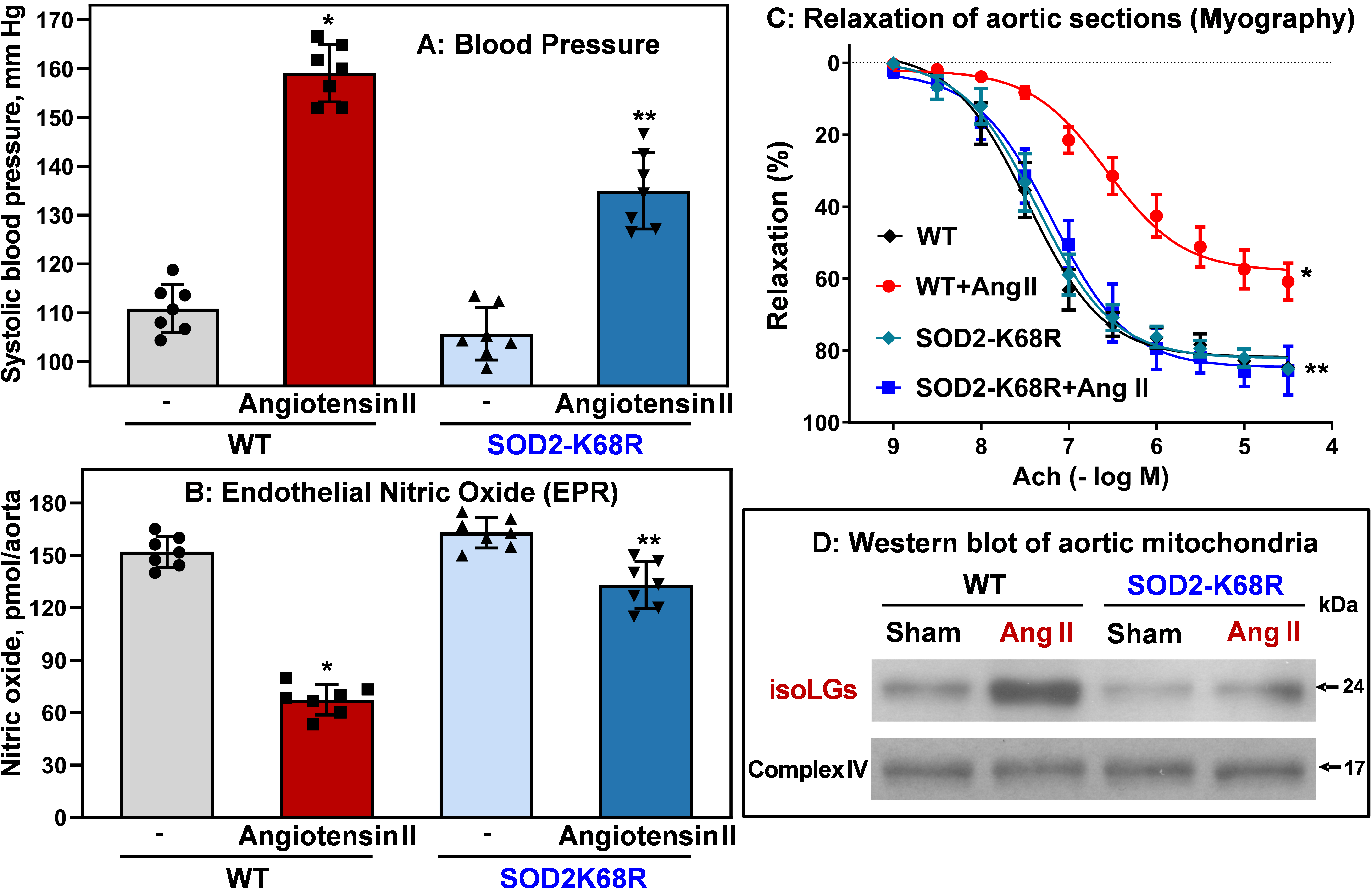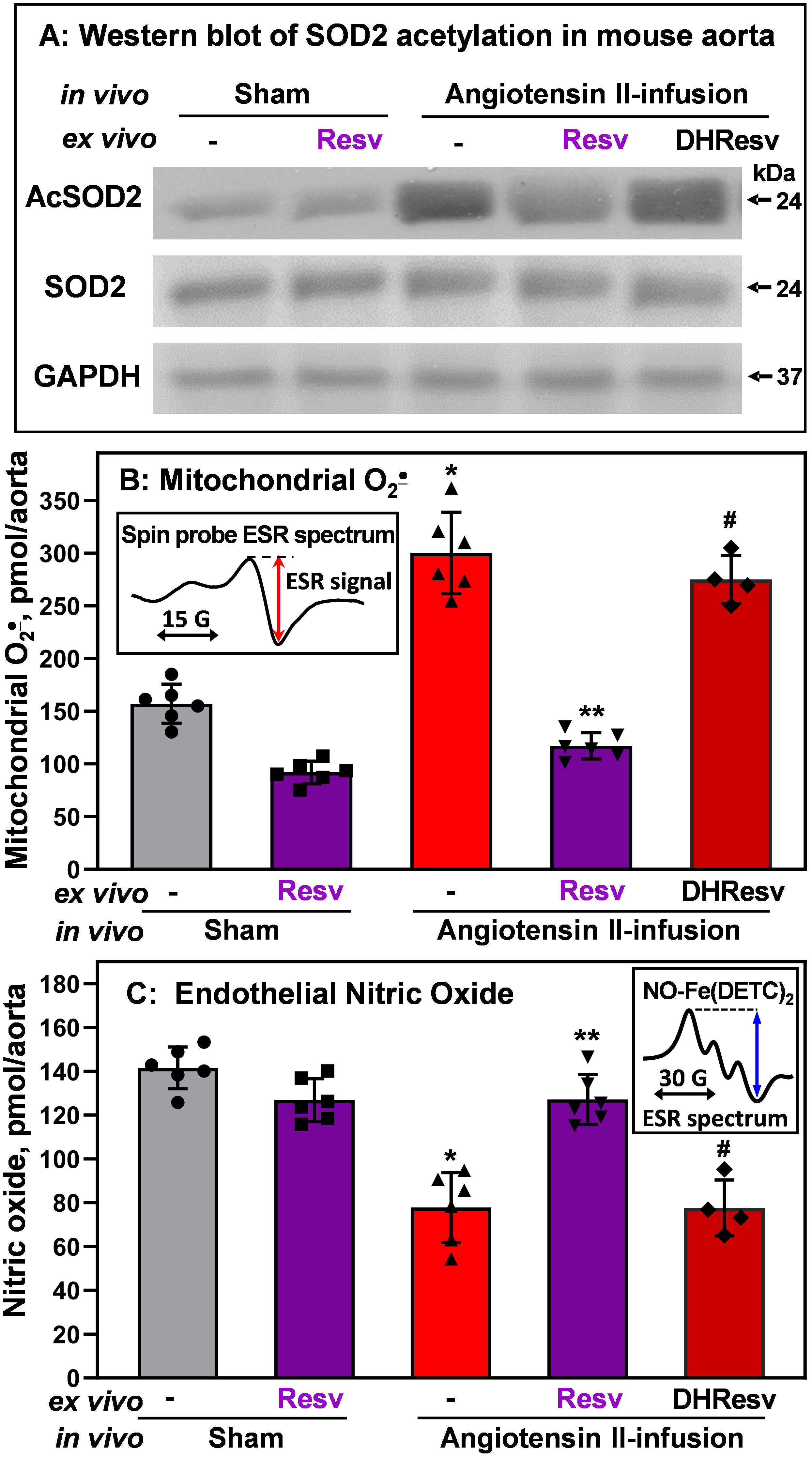Final ID: 31
Deacetylation Mimetic Mutation of Mitochondrial Superoxide Dismutase Attenuates Angiotensin II-Induced Hypertension by Protecting Against Oxidative Stress
Abstract Body: Almost one-half of adults have hypertension, and blood pressure is poorly controlled in a third of patients despite the use of multiple drugs, likely due to mechanisms that are not affected by current treatments. Hypertension is linked to oxidative stress; however, common antioxidants are ineffective. Hypertension is associated with inactivation of key intrinsic mitochondrial antioxidant, superoxide dismutase 2 (SOD2), due to hyperacetylation but the role of specific SOD2 lysine residues has not been defined. Hypertension is associated with SOD2 acetylation at Lysine 68 (Circ Res. 2020;126(4):439-452) and we suggested that deacetylation mimetic mutation of K68 to Arginine in SOD2 inhibits vascular oxidative stress and attenuates hypertension. To test this hypothesis, we have developed a new deacetylation mimic SOD2-K68R mice. We performed in vivo studies in SOD2-K68R mice using angiotensin II (AngII) model of vascular dysfunction and hypertension. AngII infusion in wild-type mice induced vascular inflammation and oxidative stress, and increased blood pressure to 160 mm Hg. SOD2-K68R mutation completely prevented increase in mitochondrial superoxide, abrogated vascular oxidative stress, preserved endothelial nitric oxide production, protected vasorelaxation, and attenuated AngII-induced hypertension. AngII and cytokines contribute to vascular oxidative stress and hypertension. Treatment of wild-type aortas with AngII and cytokines in organoid culture increased mitochondrial superoxide by 2-fold which was completely prevented in aortas isolated from SOD2-K68R mice. Interestingly, ex vivo treatment of aortas isolated from hypertensive mice with Sirtuin activator resveratrol reduces SOD2 acetylation, inhibits mitochondrial superoxide, and rescues endothelial nitric oxide. These data support the important role of SOD2-K68 acetylation in vascular oxidative stress and pathogenesis of hypertension. We conclude that strategies to reduce SOD2 acetylation may have therapeutic potential in the treatment of vascular dysfunction and hypertension.
More abstracts on this topic:
A KLF2-BMPER-Smad1/5 checkpoint regulates high fluid shear stress-mediated artery remodeling
Deng Hanqiang, Zhang Jiasheng, Schwartz Martin
A Key Role of Proximal Tubule Renin-Angiotensin System in The Kidney in The Development of Kidney Ischemia and Reperfusion InjuryLi Xiao, Hassan Rumana, Katsurada Akemi, Sato Ryosuke, Zhuo Jia



